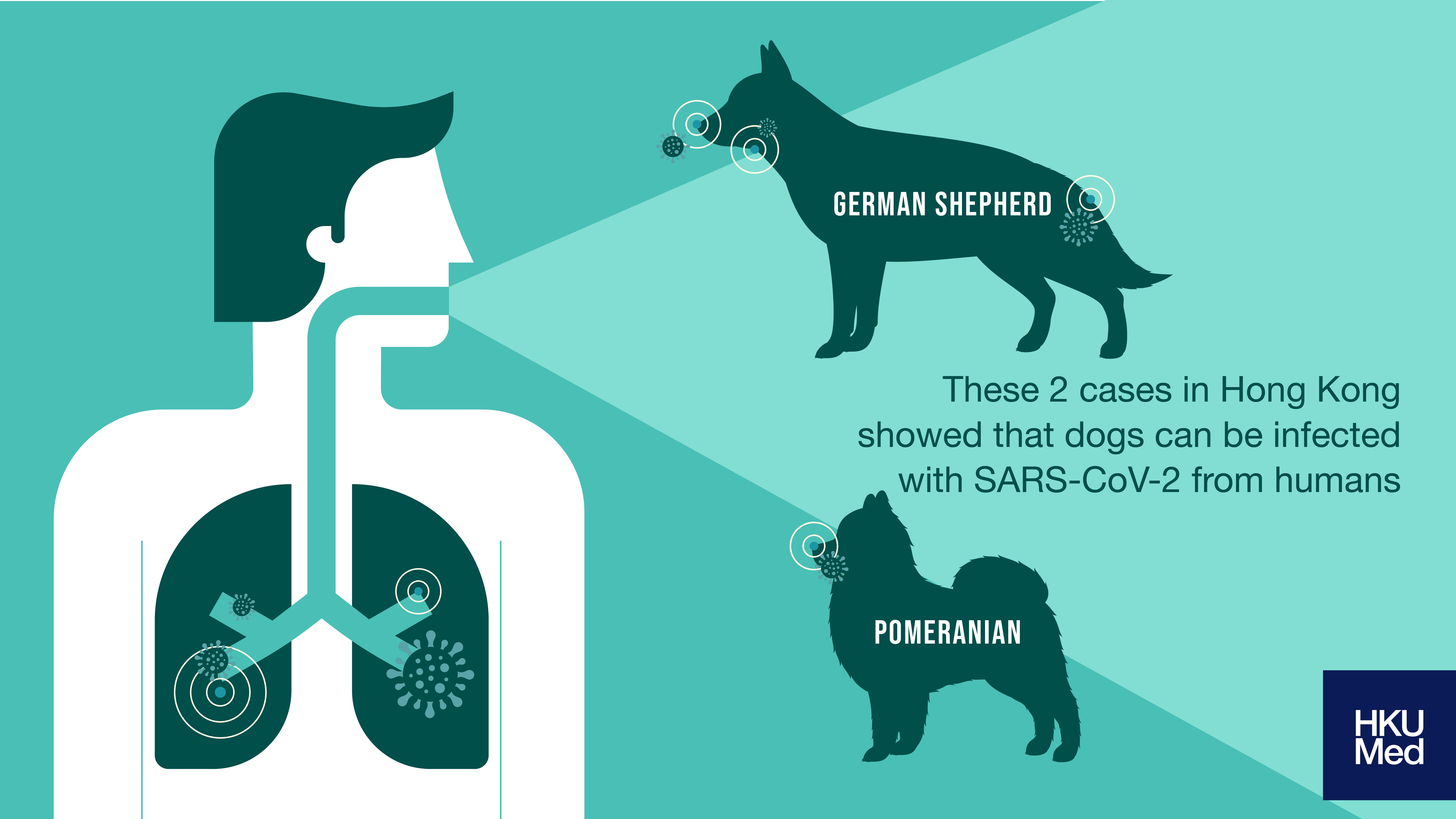Patients diagnosed with COVID-19 in Hong Kong are hospitalised and their household contacts quarantined. Affected pet owners are given the option for their pets to be looked after and isolated by the Hong Kong Agriculture, Fisheries and Conservation Department. Fifteen dogs and 7 cats from households with known COVID-19 cases have since been tested for SARS-CoV-2. Experts from HKUMed reported 2 cases of SARS-CoV-2 transmission from humans to animals. The study results were published in Nature, a leading journal of science.
Key takeaways from the study:
- Case 1: A 17-year-old male Pomeranian with a number of pre-existing diseases whose owner was diagnosed with COVID-19. Genetic material (viral RNA) of SARS-CoV-2 was found in the nasal swabs.
- Case 2: A 2.5-year-old male German Shepherd in good health whose owner was diagnosed with COVID-19. Oral, nasal and rectal samples tested positive.
- Both dogs developed antibodies – the immune system antiviral response – against the virus.
- Viral RNA from case 2 matched with that of the owner.
These 2 cases in Hong Kong showed that dogs can be infected with SARS-CoV-2 from humans. It is not known whether the virus can make the dog sick or whether the infected dogs can spread the virus to other animals or back to humans. As dogs may be sold or found in wildlife markets, they should be tested when studying the origin of the SARS-CoV-2 virus to understand if they play a role in the COVID-19 pandemic.
To read the original article published in Nature, click here.
